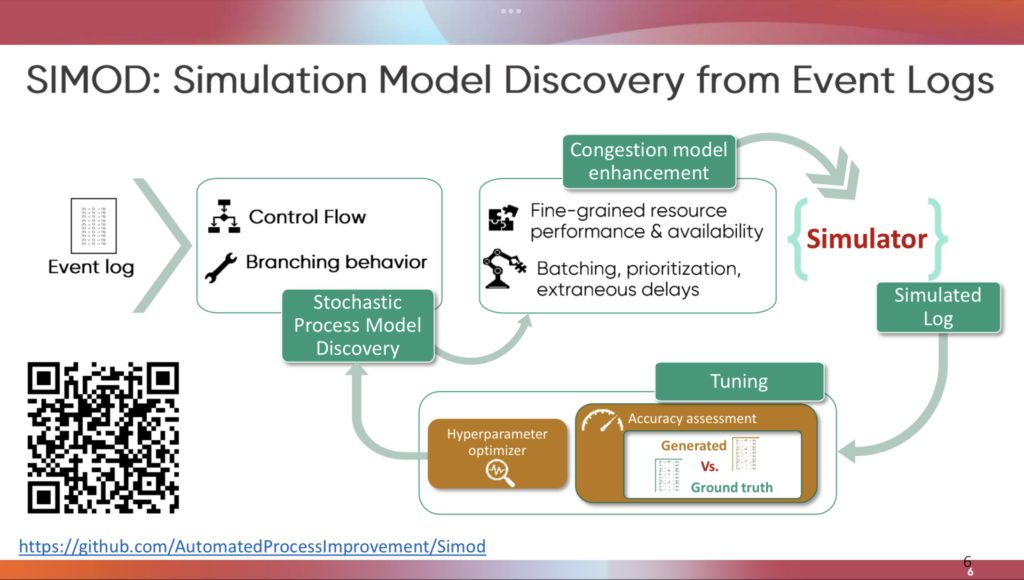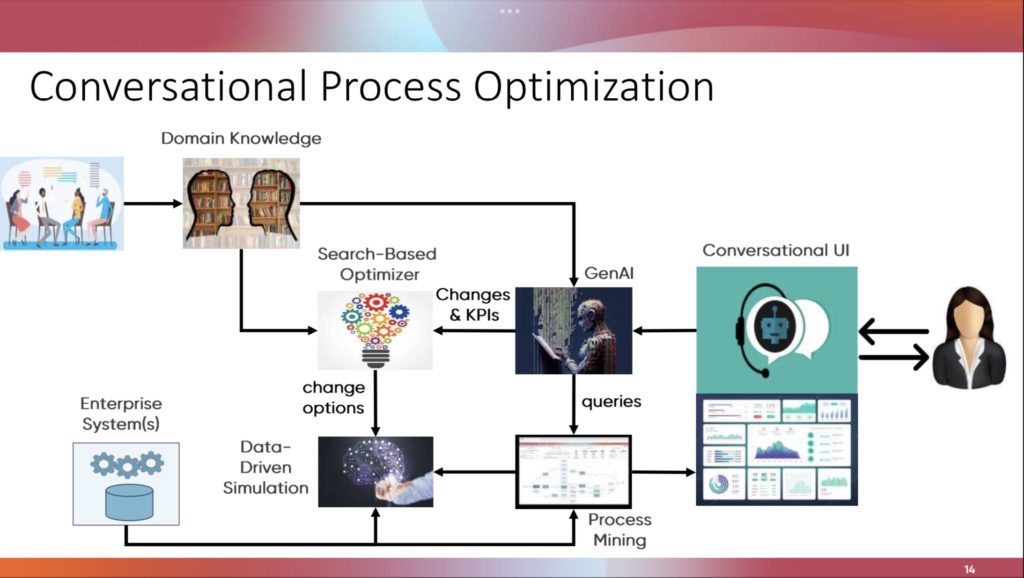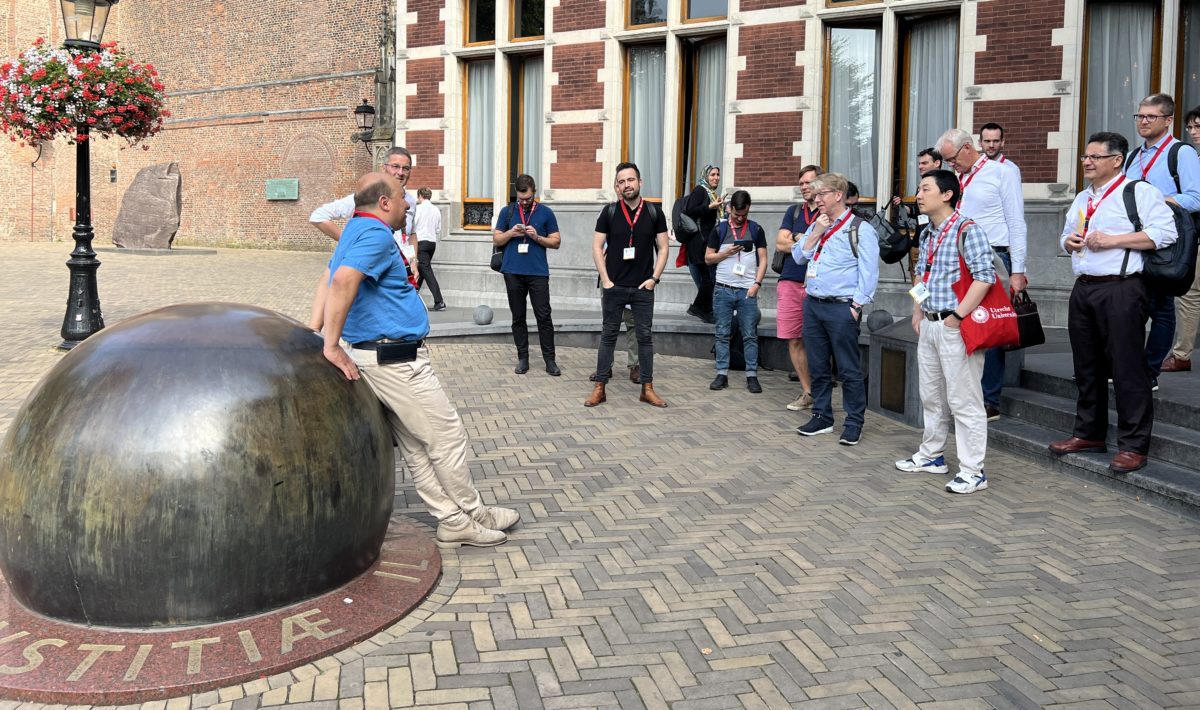11 years ago, Marlon Dumas from Tartu University chaired the BPM2012 conference in Tallinn, Estonia, which I was able to attend. We had met at a previous conference (maybe Milan?), then since that time I’ve worked with his company Apromore to create a white paper on process mining. Today, he gave a keynote at the workshop here at BPM2023 on the status and perspectives of business process optimization.
He started with the origins of process optimization from 20+ years ago: start with discovery to create the as-is model, then develop of the to-be model, testing of the new model, and eventually deployment. Adding simulation to the loop allows for some testing and predicted performance to feed back into the design prior to deployment. This type of process analysis had a lot of flaws due to some fundamentally flawed assumptions about the correctness of the process model and simulation parameters, the skills and behaviour of the process participants, and general resource management. Marlon (and many others) have endorsed these imperfect methods in the past, and he invited us to tear up his earlier book on BPM. 😆
Since then, he has been working on a better sort of simulation model based on discovery from event logs: think of it as using process mining as an automated generator for more complex simulation parameters rather than just the base process model. They have shared their work for other researchers to review and extend.

This has opened the door to more automated process optimization techniques: search-based, which adds domain knowledge to the simulation model discovery to generate a set of possible process changes that can then be simulated and tested to determine the best improvement opportunities. Optimization, as he pointed out, is a multi-dimensional problem since we are always working towards the improvement of more than one performance indicator. Dimensions of improvement may include optimization of decision rules, flow, tasks and/or resources. They’ve done some additional work on an optimization engine that’s also shared on GitHub.
He moved on to talking about conversational process optimization, which makes search-based optimization just a step in a broader approach that puts a human expert in the loop to guide the exploration of the optimization space. In this approach, a conversational UI has an interactive discussion with a human expert, then combines that with the search-based optimization techniques, then presents that back to the expert for review and further conversation and optimization.

As the presentation finished and we were moving to questions, security kicked us out of our room for overcrowding, so we adjourned to the outdoor square. Lots of great discussion, with Marlon mentioning that the field of Operations Research is okay except that it’s the domain of a bunch of mathematicians, and urging us to cast off the shackles of process models. Also a good bit about the optimization of resource workload and allocation to maximize efficiency: people work best when they are “happy” (a proxy for “unstressed and productive”), which means having neither too much nor too little work, and the right mix of work.
Marlon published his slide deck on Slideshare, which allowed me to steal a few screenshots rather than trying to photograph the live presentation.

